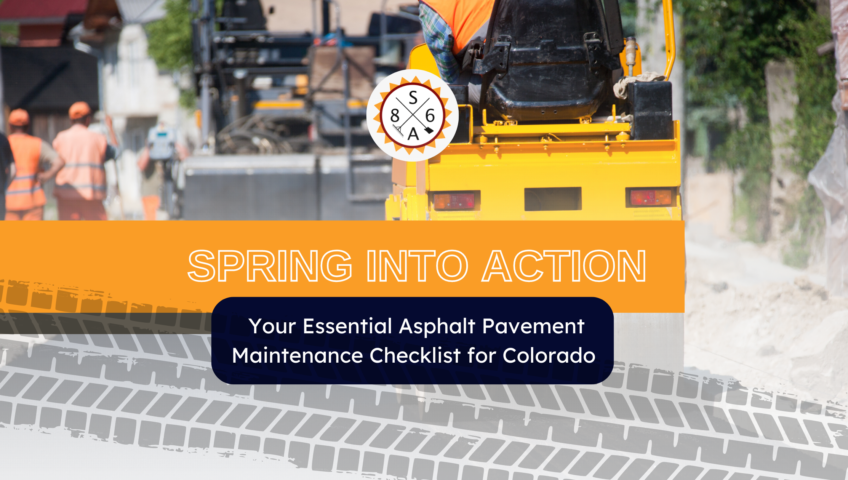
Spring into Action: Your Essential Asphalt Pavement Maintenance Checklist for Colorado
With Colorado’s unique climate and altitude, caring for your asphalt pavement requires special attention, especially after the challenging winter months. As temperatures rise and the snow melts away, spring presents the ideal time to inspect and maintain your asphalt surfaces. Follow this detailed checklist specifically tailored for Colorado to ensure your pavement remains in excellent condition.
1. Thorough Cleaning
Start your spring maintenance with a complete cleaning of your asphalt surface. Remove all debris, including leaves, twigs, and litter, which can mask potential damage. In Colorado, the melting snow can leave behind gravel and salt residue that needs to be cleared to prevent surface abrasion and chemical degradation of the asphalt.
2. Crack Filling
The freeze-thaw cycle is particularly harsh in Colorado, often resulting in significant cracking. Inspect your pavement for any new cracks and have them filled promptly. Using a high-quality, rubberized asphalt crack filler is crucial, as it accommodates the temperature fluctuations typical of Colorado’s climate, preventing water from penetrating the asphalt and causing further damage.
3. Pothole Repairs
Potholes are a common aftermath of Colorado winters. They form when water seeps into cracks and expands as it freezes. Address these potholes early in the spring to prevent them from enlarging or causing accidents. Quick patching helps maintain the integrity and safety of your pavement.
4. Oil Spot Treatment
Oil and gasoline spills can degrade asphalt, a common issue in both residential driveways and commercial parking lots. These spills are more problematic in Colorado due to temperature variations that can accelerate the damage. Treat these spots with a cleaner or a primer specifically designed for petroleum-based spills.
5. Sealcoating
Sealcoating provides a protective layer that shields the asphalt from UV rays, moisture, and chemicals. In Colorado, where UV exposure is more intense due to the higher elevation, sealcoating is even more critical. It also rejuvenates the appearance of your pavement. Plan to sealcoat your asphalt every two to three years, preferably in the spring, to prepare it for the intense summer sun and the next winter season.
6. Line Striping
Traffic and harsh weather can fade line striping. Restriping is essential for safety and aesthetic reasons. In Colorado, clear and visible pavement markings are vital for managing snow removal and driving safety during sudden spring snowstorms and rainy weather.
7. Drainage Inspection
Effective drainage is crucial, especially in Colorado, to handle spring runoff effectively. Inspect and clear your drainage systems to prevent water accumulation, which can quickly damage asphalt. Ensure gutters, downspouts, and surface drains are free of obstructions and functional.
8. Landscape Trimming
In Colorado, it’s important to keep foliage under control to prevent moisture retention on asphalt surfaces. Trim trees and bushes to avoid water drips and root interference, which can both cause significant damage to the pavement structure.
9. Regular Inspections
Frequent inspections are vital in Colorado due to its unpredictable weather. Regularly check your pavement for signs of distress, including fading, cracking, and warping. Early detection of issues can significantly reduce repair costs and extend the lifespan of your pavement.
10. Professional Assessment
Given the complexities of Colorado’s climate and altitude, consider consulting with a pavement professional. They can offer a detailed assessment and tailor maintenance strategies to your specific needs, ensuring your asphalt remains durable and visually appealing.
This spring, ensure that your Colorado pavement is prepared to handle the unique local climate challenges. By adhering to this maintenance checklist, you’ll not only enhance the safety and appearance of your property but also protect your investment for years to come.
